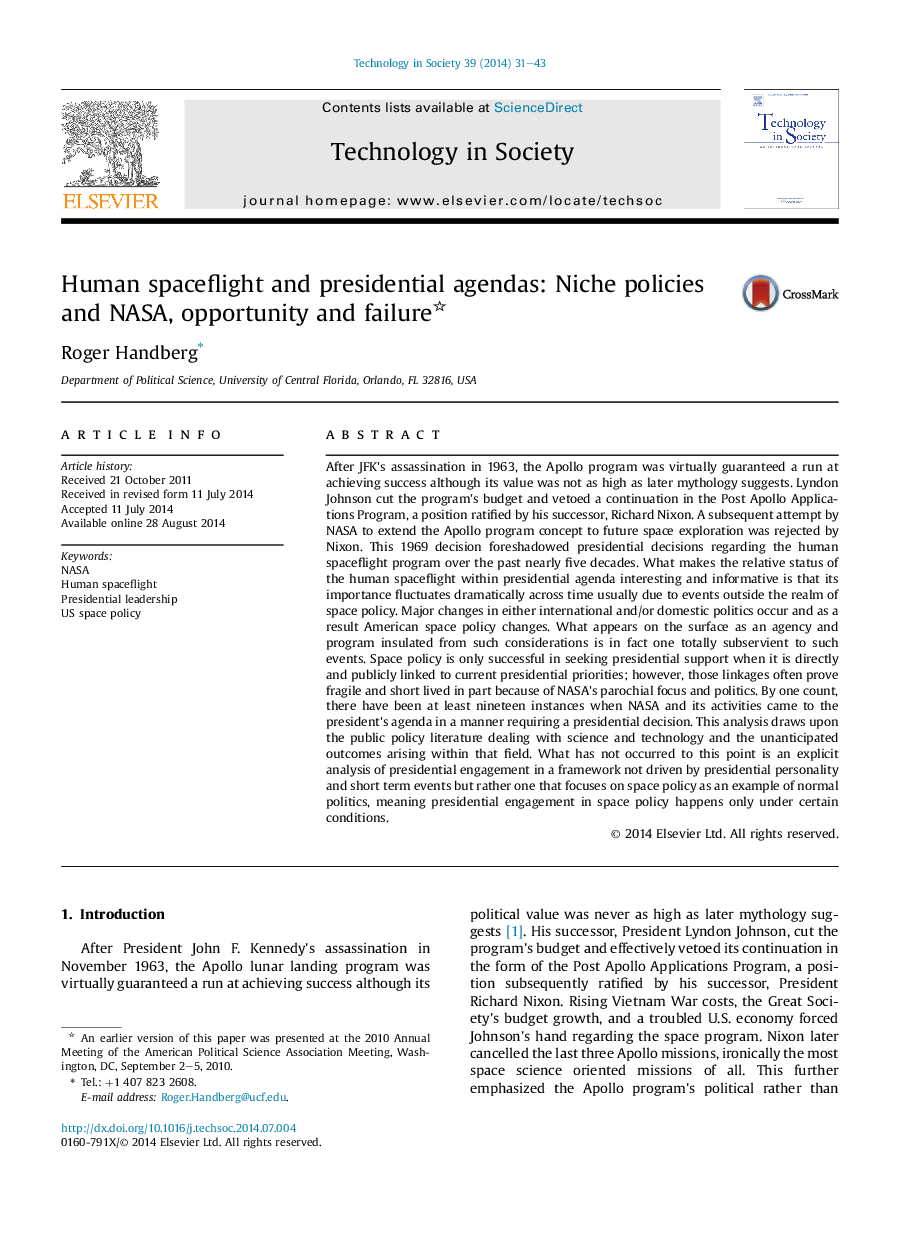| کد مقاله | کد نشریه | سال انتشار | مقاله انگلیسی | نسخه تمام متن |
|---|---|---|---|---|
| 375177 | 622672 | 2014 | 13 صفحه PDF | دانلود رایگان |
• Provides a revised perspective on presidential human spaceflight leadership.
• Reviews the arc of federal budgeting with regards to NASA.
• Challenges the view that presidents are greatly supportive of NASA human spaceflight.
After JFK's assassination in 1963, the Apollo program was virtually guaranteed a run at achieving success although its value was not as high as later mythology suggests. Lyndon Johnson cut the program's budget and vetoed a continuation in the Post Apollo Applications Program, a position ratified by his successor, Richard Nixon. A subsequent attempt by NASA to extend the Apollo program concept to future space exploration was rejected by Nixon. This 1969 decision foreshadowed presidential decisions regarding the human spaceflight program over the past nearly five decades. What makes the relative status of the human spaceflight within presidential agenda interesting and informative is that its importance fluctuates dramatically across time usually due to events outside the realm of space policy. Major changes in either international and/or domestic politics occur and as a result American space policy changes. What appears on the surface as an agency and program insulated from such considerations is in fact one totally subservient to such events. Space policy is only successful in seeking presidential support when it is directly and publicly linked to current presidential priorities; however, those linkages often prove fragile and short lived in part because of NASA's parochial focus and politics. By one count, there have been at least nineteen instances when NASA and its activities came to the president's agenda in a manner requiring a presidential decision. This analysis draws upon the public policy literature dealing with science and technology and the unanticipated outcomes arising within that field. What has not occurred to this point is an explicit analysis of presidential engagement in a framework not driven by presidential personality and short term events but rather one that focuses on space policy as an example of normal politics, meaning presidential engagement in space policy happens only under certain conditions.
Journal: Technology in Society - Volume 39, November 2014, Pages 31–43
